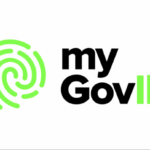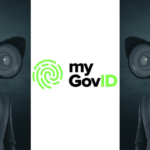Government’s Digital ID Scheme: Greater State Control and a Haven for Hackers

Digital identifications are likely to become a reality in Australia, with the Federal Senate passing the Digital ID (Transitional and Consequential Provisions) Bill 2023 last week.
The next step is for the Bill to pass the lower house, before it can be given Assent and brought into effect.
Controversial move
Digital IDs have been controversial to say the least, primarily due to privacy concerns – enabling government agencies even greater power to monitor and track the actions of retain personal data that relates to individuals, and potentially increasing the prospects of cyber security breaches with even greater pervasiveness and impact than those against a number of government schemes such as My Health Record, the Census, Australia Driver Licence database and the CovidSafe app, and even private companies such as Medibank and Optus.
Indeed, the appalling track record of Australian government agencies to secure the personal data of individuals and their systemic misuse of such data has many concerned about the proposed scheme.
Biometric data
Despite these concerns, the Bill passed the Senate with some amendments but little community consultation.
The scheme will initially be voluntary – although there are concerns the scheme may later be amended to become mandatory, a slow ‘boiling of the frog’.
The government says it will have ‘enhanced privacy protections’, especially around biometric data, as well as safeguards which are claimed to ensure deactivated IDs cannot be reactivated without the individual’s.
Organisations such as banks are required to formulate policies regarding use of paper ID information generated by way of digital IDs.
Reporting requirements
A reporting framework has also been introduced for law enforcement agencies and enforcement bodies which access, or attempt to access, information held through the scheme.
But while these protections and safeguards are being lauded by the government, history has demonstrated that such requirements are often ignored.
Protection against scammers
The primary justification for the scheme is that it will provide a further layer of protection against scammers – which is one of the usual lines ‘trotted out’ when the government seeks to introduce IT related yet intrusive ‘initiatives’
However, there is a very real concern that if the information falls into the wrong hands, the potential for identity theft is exponential.
This was painstakingly obvious only 18 months or so ago when three of Australia’s largest organisations were hacked within weeks of each other.
The very real risks
And it also again highlights the need for better assistance to be available for Australians who have had information leaked online, through no fault of their own.
At the time Optus, Medicare, and Woolworth’s My Deal customers felt completely powerless as the CEOs of these large corporations scrambled to explain how data was accessed, and where it went, and what the potential eventualities, including recovering it, might be.
Little in the way of help was offered. Instead, these companies passed the responsibility on to customers telling them to be ‘vigilant’. Optus customers have since launched a class action which is yet to reach the courts.
So, it’s not understable that Australians might be a little shy of signing up to Digital IDs, although according to government figures, about 10 million already have.
The technology divide
While the scheme could make providing ID easier online – which might be a convenience considering so many government services and private companies are only now accessible online – there also needs to be consideration for the large number of Australians on the other side of the ‘technology divide’ – those living in remote areas where internet access is not always reliable, the homeless who don’t always have access to online services, and the elderly, many of whom have not embraced the internet in significant ways yet, and still prefer to the do things the ‘old way’.
All that aside, Digital IDs are coming, and at significant expense to taxpayers which reported figures suggesting that $600 million has been spent since the scheme was first announced in 2015. The current Labor Government has pledged about $140 more to get the scheme up and running.
It’s also important to remember that the more of our privacy we hand over, the less freedom we have. And Australia is the only democratic nation in the world not to have a bill of rights.







